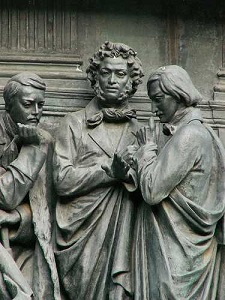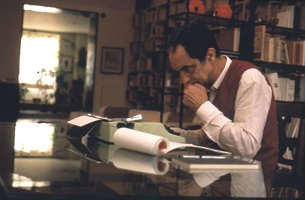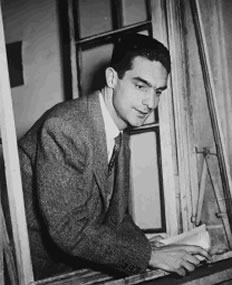De Russische dichter en schrijver Michail Joerjevitsj Lermontov werd geboren op 15 oktober 1814 in Moskou. Zie ook mijn blog van 15 oktober 2010 en eveneens alle tags voor Michail Lermontov op dit blog.
The Dream
In noon’s heat, in a dale of Dagestan
With lead inside my breast, stirless I lay;
The deep wound still smoked on; my blood
Kept trickling drop by drop away.
On the dale’s sand alone I lay. The cliffs
Crowded around in ledges steep,
And the sun scorched their tawny tops
And scorched me – but I slept death’s sleep.
And in a dream I saw an evening feast
That in my native land with bright lights shone;
Among young women crowned with flowers,
A merry talk concerning me went on.
But in the merry talk not joining,
One of them sat there lost in thought,
And in a melancholy dream
Her young soul was immersed – God knows by what.
And of a dale in Dagestan she dreamt;
In that dale lay the corpse of one she knew;
Within his breast a smoking wound showed black,
And blood ran in a stream that colder grew.
Heaven And The Stars
Brilliant heavens of evening,
Distant stars clearly shining,
Bright as the rapture of childhood,
O why dare I send you nevermore greeting–
Stars, who are shining as clear as my joy?
What is thy sorrow?
Mortals make question.
This is my sorrow;
The heavens and the stars are–heaven and stars ever,
I am alas! but a perishing man!
Forever mortal
Envies his neighbor;
I envy rather
Ye in your freedom, ye stars ever radiant,
And only would be in your places!

Michail Lermontov (15 oktober 1814 – 27 juli 1841)
Lermontov, Poesjkin en Gogol op het Nationale Monument in het Kremlin van Novgorod


